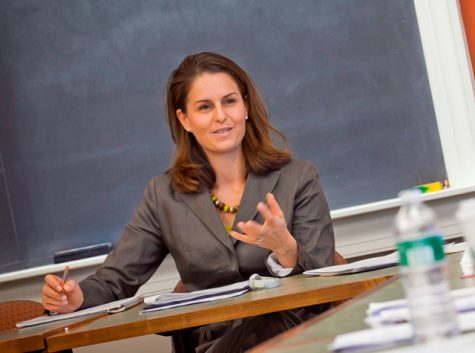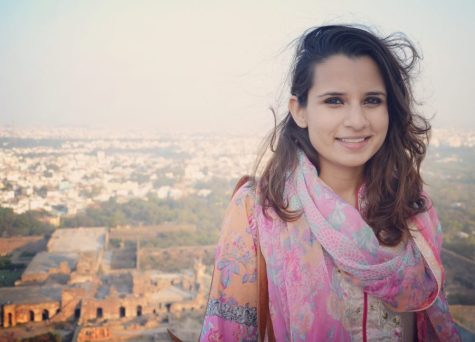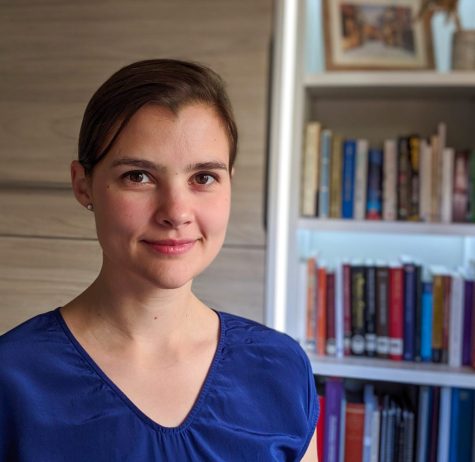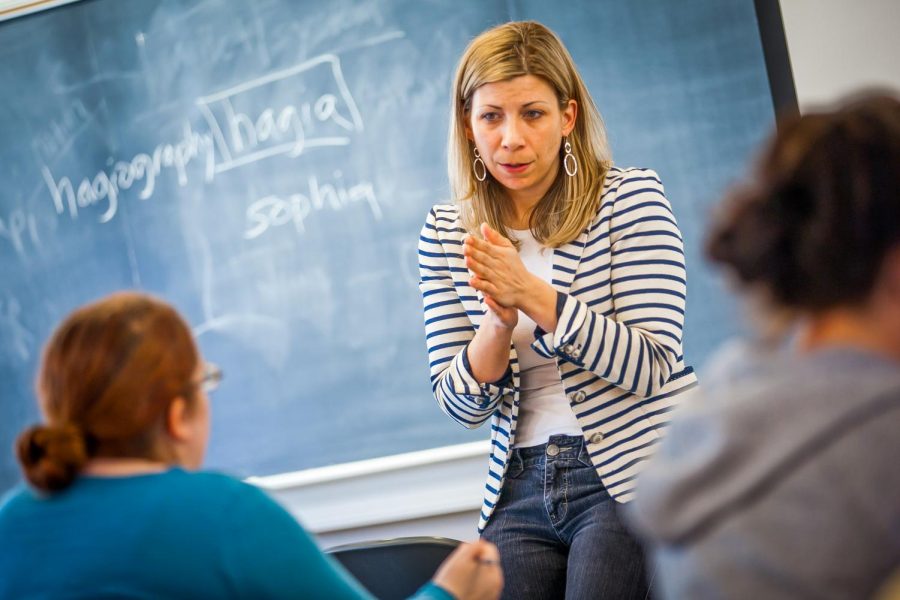How does one end up specializing in late medieval Middle Eastern history, South American food studies or English peasant populations? The women of the history department each followed a unique path to find their concentrations.
Rachel Goshgarian
Rachel Goshgarian, associate professor of history, focuses her studies on Middle Eastern history, particularly that of the late medieval and early modern periods.
“My general field of inquiry is late medieval, early modern Middle Eastern history with a specific focus on Anatolia or what is today the lands that encompass the modern Republic of Turkey,” Goshgarian said.
Though specializing in Ottoman history, at Lafayette, Goshgarian teaches the history of the Middle East from the year A.D. 600 until the present day.
“I teach a very wide temporal range … I recognize that students at the college might be more interested in learning about modern history but that oftentimes, once they take a course with me in modern history of the Middle East … they will take earlier courses with me,” Goshgarian said. “[This] is wonderful for me because it means that … more students at the college get a wider scope on history of humans rather than just a 19th and 20th century one.”
Goshgarian cited her graduate school experience at Harvard, specifically a class with professor of Turkish studies Cemal Kafadar, and her own identity as an Armenian American as reasons why she studies this area of history.
“The way [Kafadar] taught history was something other than the way I had been taught it before in the sense that he didn’t seem to view everything as an inevitable march towards the establishment of the nation-state,” Goshgarian said. “I was always wondering, ‘What is this thing that’s Armenian?’ And taking his course made me realize that there were lots of different ways to imagine identity.”
Rebekah Pite
Professor Rebekah Pite, head of the history department, specializes in the synthesis of food studies and the history and culture of South America.

“My research focuses on gender, food and domestic work in the specific context of southern South America. So largely Argentina but increasingly also surrounding nations like Paraguay and Uruguay,” Pite said.
According to Pite, her interest in these intersecting areas of history came from both “an early interest in Spanish” and an observation that a majority of Argentinian and other South American populations’ voices are excluded from accounts of important historical events.
“As I started learning more about Latin American history and interest in everyday life, I started learning about the dictatorships there in the 1970s and 80s … I noted that there was a lot [of history] on the military … but the majority of the population was kind of excluded from those accounts, so I became really interested in how you could get at that,” Pite said.
“When I started doing research in this region and in Argentina, I realized that food was an excellent way into conversations in which people would tell me about what they cared about, their daily lives … and I’ve continued to use that as a window onto human relationships, power dynamics, the formation of community,” she said.
Hafsa Kanjwal
Hafsa Kanjwal, assistant professor of history, also cited her background and identity as a reason she specializes in her areas of study: modern South Asia and the history of the Islamic world.
“I’m from Kashmir, and so my Ph.D. work was actually on Kashmir,” Kanjwal said. “[Kashmir] is often just seen as a disputed region between India and Pakistan … [and] I was interested in really trying to understand Kashmiri history from the perspective of the people themselves.”

Kanjwal also feels that decentering historical narratives from colonial perspectives is essential to her work as a historian.
“I did my fieldwork [in Kashmir] and was really just trying to think about … the way that history gets narrated, [which] oftentimes serves imperial or colonial agendas,” Kanjwal said. “My hope was to try to push back against some of that and really bring in voices and perspectives that are often marginalized.”
“I always felt that the way that the story about what happened had been told did not actually match up to either stories that I heard growing up or my own understanding of the situation. And so part of it was to try to uncover some of those questions that I had,” she said.
Louisa Foroughi
Professor Louisa Foroughi, assistant professor of history, specializes in teaching pre-modern European history and researching the history of peasant populations in 14th through 16th century England.

“My research focuses on late medieval England … and I look specifically at the social history of the peasantry, so how they relate to each other, their identities, their cultural productions, their economic practices, trying to think really holistically about the experiences of life within an ordinary social context,” Foroughi said. “Because I’m really fascinated by those questions about what it was like for the ninety percent, who didn’t leave records to the same degree as other social groups.”
In her teaching and research, Foroughi enjoys combating preconceived notions that many have about the Middle Ages.
“The Middle Ages are, surprisingly, sort of dominant and omnipresent in media, in popular entertainment, in fantasy literature and video games. They’re a language that we use a lot in Western society … but people don’t really know what life was like for people in the Middle Ages,” Foroughi said.
“I think it’s a disservice if we only approached this time period through our imagination about it, rather than looking at what people actually left behind,” she said.
History professor Deborah Rosen was not available for comment.





































































































Gaspar • Mar 10, 2023 at 1:07 pm
Bravo acghig bravo did
Awsome to my big sis